三苯甲基磷化氢, 99%,Tribenzylphosphine
产品编号:西域试剂-WR379919| CAS NO:7650-89-7| MDL NO:MFCD00014439| 分子式:C21H21P| 分子量:304.37
本网站销售的所有产品仅用于工业应用或者科学研究等非医疗目的,不可用于人类或动物的临床诊断或者治疗,非药用,非食用,
| 英文名称 | Tribenzylphosphine |
|---|---|
| CAS编号 | 7650-89-7 |
| 产品熔点 | 96-101 °C(lit.) |
| 产品沸点 | 183-185°C/0.2mm |
| 产品闪点 | 183-185°C/0.2mm |
| 精确质量 | 304.13800 |
| PSA | 13.59000 |
| LogP | 6.06890 |
| 稳定性 | 如果遵照规格使用和储存则不会分解 避免接触氧化物,空气 |
| 储存条件 | 干性的保护气体下处置, 保持贮藏器密封 放入紧密的贮藏器内,储存在阴凉,干燥的地方 |
相关文档
化学品安全说明书(MSDS)
下载MSDS质检证书(COA)
相关产品
| 符号 |
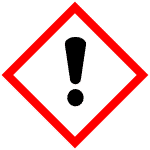
GHS07 |
|---|---|
| 信号词 | Warning |
| 危害声明 | H315-H319-H335 |
| 警示性声明 | P261-P305 + P351 + P338 |
| 个人防护装备 | dust mask type N95 (US);Eyeshields;Gloves |
| 危害码 (欧洲) | Xi |
| 风险声明 (欧洲) | 36/37/38 |
| 安全声明 (欧洲) | S26 |
| 危险品运输编码 | NONH for all modes of transport |
| WGK德国 | 3 |
| RTECS号 | SZ3865000 |
|
Section 1: Product Identification Chemical Name:Tribenzylphosphine, 98% CAS Registry Number:7650-89-7 Formula:C21H21P EINECS Number:231-608-6 Chemical Family:organophosphorus ligand Synonym:none
Section 2: Composition and Information on Ingredients IngredientCAS NumberPercentACGIH (TWA)OSHA (PEL) Title compound7650-89-7100%no datano data Section 3: Hazards Identification Emergency Overview:Irritating to skin, eyes and respiratory tract. May be harmful if swallowed. Primary Routes of Exposure:Ingestion, inhalation Eye Contact:Causes moderate irritation of the eyes. Skin Contact:Causes slight to mild irritation of the skin. Inhalation:Irritating to the nose, mucous membranes and respiratory tract. Ingestion:No specific information is available on the physiological effects of ingestion. May be harmful if swallowed. Acute Health Affects:Irritating to skin, eyes and respiratory tract. Chronic Health Affects:No information available on long-term chronic effects. NTP:No IARC:No OSHA:No SECTION 4: First Aid Measures Immediately flush the eyes with copious amounts of water for at least 10-15 minutes. A victim may need Eye Exposure: assistance in keeping their eye lids open. Get immediate medical attention. Wash the affected area with water. Remove contaminated clothes if necessary. Seek medical assistance if Skin Exposure: irritation persists. Remove the victim to fresh air. Closely monitor the victim for signs of respiratory problems, such as difficulty Inhalation: in breathing, coughing, wheezing, or pain. In such cases seek immediate medical assistance. Seek medical attention immediately. Keep the victim calm. Give the victim water (only if conscious). Induce Ingestion: vomiting only if directed by medical personnel. SECTION 5: Fire Fighting Measures Flash Point:not applicable Autoignition Temperature:no data Explosion Limits:no data Extinguishing Medium:dry chemical, carbon dioxide, water, or foam. Fire fighters should be equipped with a NIOSH approved positive pressure self-contained breathing apparatus Special Fire Fighting Procedures: and full protective clothing. Hazardous Combustion andIn a fire material may emit toxic organic fumes, carbon monoxide, carbon dioxide, and phosphorous pentoxide. Decomposion Products: Unusual Fire or Explosion Hazards: No unusual fire or explosion hazards. SECTION 6: Accidental Release Measures Spillage in areas not adequately ventilated may require evacuation of area. Emergency response teams will Spill and Leak Procedures:require self contained breathing apparatus. Small spills may be adsorbed into diatomaceous earth, sand, or other suitable adsorbents, and swept up. SECTION 7: Handling and Storage Store in a cool, dry, area away from heat. Material must be handled and stored under an inert atmosphere of Handling and Storage: nitrogen or argon. SECTION 8: Exposure Controls and Personal Protection Eye Protection:Always wear approved safety glasses when handling a chemical substance in the laboratory. Skin Protection:Wear protective clothing and gloves. Consult with glove manufacturer to determine the proper type of glove. Ventilation:Material has a pungent odor and may form a fine dust. Always handle material in an efficient fume hood. If ventilation is not available a respirator should be worn. The use of respirators requires a Respirator Respirator: Protection Program to be in compliance with 29 CFR 1910.134. Ventilation:Material has a pungent odor and may form a fine dust. Always handle material in an efficient fume hood. Additional Protection:No additional protection required. SECTION 9: Physical and Chemical Properties Color and Form:white pwdr. Molecular Weight:304.37 Melting Point:96-101° Boiling Point:no data Vapor Pressure:no data Specific Gravity:no data Odor:pungent odor Solubility in Water:insoluble SECTION 10: Stability and Reactivity Stability:air sensitive Hazardous Polymerization:no hazardous polymerization Conditions to Avoid:contact with air Incompatibility:oxidizing agents and halogens Decomposition Products:carbon dioxide, carbon monoxide, organic fumes, and phosphorus pentoxide. SECTION 11: Toxicological Information RTECS Data:No information available in the RTECS files. Carcinogenic Effects:No data available Mutagenic Effects:No data available Tetratogenic Effects:No data available SECTION 12: Ecological Information Ecological Information:No information available SECTION 13: Disposal Considerations Disposal:Dispose of according to federal, state, and local regulations. SECTION 14: Transportation Shipping Name (CFR):Non-hazardous Hazard Class (CFR):NA Additional Hazard Class (CFR):NA Packaging Group (CFR):NA UN ID Number (CFR):NA Shipping Name (IATA):Non-hazardous Hazard Class (IATA):NA Additional Hazard Class (IATA):NA Packaging Group (IATA):NA UN ID Number (IATA):NA SECTION 15: Regulatory Information TSCA:Not listed in the TSCA inventory. SARA (Title 313):Title compound not listed. Second Ingredient:none SECTION 16 - ADDITIONAL INFORMATION N/A |
|
~59% 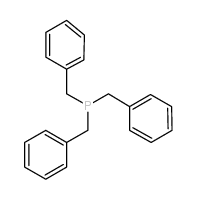
7650-89-7 |
| 文献:Landaeta, Vanessa R.; Peruzzini, Maurizio; Herrera, Veronica; Bianchini, Claudio; Sanchez-Delgado, Roberto A.; Goeta, Andres E.; Zanobini, Fabrizio Journal of Organometallic Chemistry, 2006 , vol. 691, # 5 p. 1039 - 1050 |
|
~% 
7650-89-7 |
| 文献:US4053518 A1, ; |
|
~% 
7650-89-7 |
| 文献:Russian Journal of General Chemistry, , vol. 67, # 1 p. 149 - 150 Zhurnal Obshchei Khimii, , vol. 67, # 1 p. 155 - 156 |
|
~% 
7650-89-7 |
| 文献:Journal of the Chemical Society, , p. 2835,2839 |
|
~% 
7650-89-7 |
| 文献:J. Gen. Chem. USSR (Engl. Transl.), , vol. 32, # 2 p. 553 - 557,542 - 545 |
|
~% 
7650-89-7 |
| 文献:J. Gen. Chem. USSR (Engl. Transl.), , vol. 32, # 2 p. 553 - 557,542 - 545 |
|
~%
详细
|
| 文献:Russian Journal of General Chemistry, , vol. 67, # 1 p. 149 - 150 Zhurnal Obshchei Khimii, , vol. 67, # 1 p. 155 - 156 |
|
~% 
7650-89-7 |
| 文献:Journal of the Chemical Society, , vol. 58, p. 767 Chemische Berichte, 24 Ref. <1891>,365 Transactions of the Royal Society of Edinburgh 35,573 Transactions of the Royal Society of Edinburgh 35,566,574 |
|
~% 
7650-89-7 |
| 文献:Journal of the Chemical Society, , vol. 58, p. 767 Chemische Berichte, 24 Ref. <1891>,365 Transactions of the Royal Society of Edinburgh 35,573 |
| 上游产品 6 | |
|---|---|
| 下游产品 3 | |

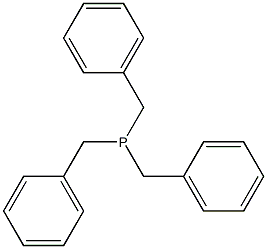
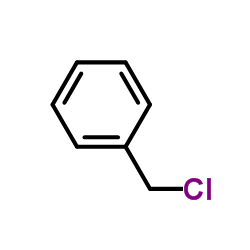
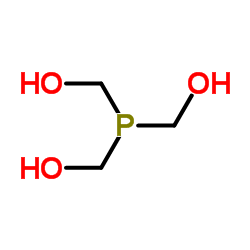
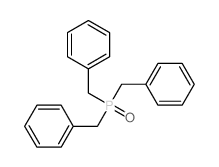
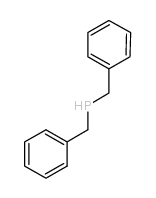



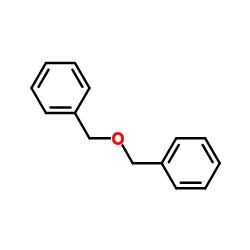
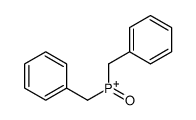
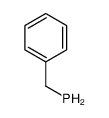
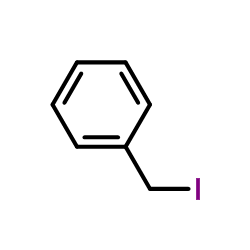
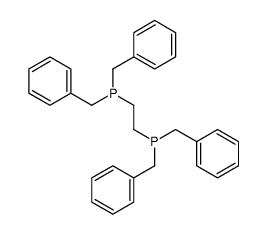
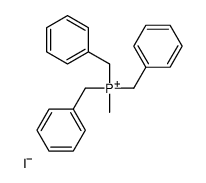





 浙公网安备 33010802013016号
浙公网安备 33010802013016号